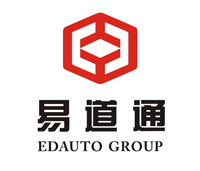1. Price cuts resume: Beijing Hyundai’s market strategy
Beijing Hyundai recently announced a series of preferential policies for car purchases, significantly reducing the starting prices of many of its models. The starting price of the Elantra has been reduced to 69,800 yuan, and the starting prices of the Sonata and Tucson L have been reduced to 115,800 yuan and 119,800 yuan respectively. This move has brought Beijing Hyundai’s product prices to a new historical low. However, the continuous price cuts have not effectively boosted sales.
Over the past two years, Beijing Hyundai has repeatedly stated it will “not engage in price wars,” yet it has continued its discounting strategy. Despite price adjustments in March 2023 and at the beginning of the year, sales of the Elantra, Tucson L, and Sonata remain disappointing. Data shows that cumulative sales of the Elantra in the first seven months of 2023 were only 36,880 units, with monthly averages of less than 5,000 units. The Tucson L and Sonata also performed poorly.
Industry analysts believe that Beijing Hyundai’s introduction of preferential policies at this time may be to clear out the inventory of fuel vehicles for the upcoming new energy models, in order to pave the way for future electric models.
2. Intensified market competition: challenges and opportunities for new energy vehicles
With the rapid development of China’s auto market, competition in the new energy vehicle market is becoming increasingly fierce. Domestic brands such as BYD, Geely, and Changan are capturing an increasing share of the market, while emerging electric vehicle manufacturers like Tesla, Ideal, and Wenjie are also steadily encroaching on the market share of traditional automakers. Although Beijing Hyundai’s electric vehicle, the ELEXIO, is scheduled to officially launch in September of this year, its success in this increasingly competitive market remains uncertain.
China’s auto market has entered the second half of its new energy transition, with many joint venture automakers gradually losing market influence amid this wave of electrification. Although Beijing Hyundai plans to launch multiple electric models by 2025, its lagging electrification transition may expose it to greater market pressure.
3. Future Outlook: Challenges and Opportunities on the Road to Transformation
Beijing Hyundai faces numerous challenges in its future development. Although both shareholders have agreed to invest US$1.095 billion in the company to support its transformation and development, the market competition landscape is changing rapidly. How to find its own position in the electrification transformation will be a challenge that Beijing Hyundai must face.
In the coming new energy era, Beijing Hyundai needs to make comprehensive plans in terms of technological innovation, marketing, and brand building. Taking root in the Chinese market and embarking on a comprehensive new energy strategy, while fraught with challenges, also holds enormous opportunities. Maintaining stability in its fuel vehicle business while accelerating the research and development and market promotion of electric vehicles will be key to Beijing Hyundai’s future success.
In short, Beijing Hyundai’s price reduction strategy is not only aimed at clearing inventory but also paving the way for its future electrification transformation. In an increasingly competitive market, balancing traditional fuel vehicles and new energy vehicles will be a key factor in Beijing Hyundai’s ability to achieve sustainable development.
Email:edautogroup@hotmail.com
Phone / WhatsApp:+8613299020000
Post time: Aug-25-2025




